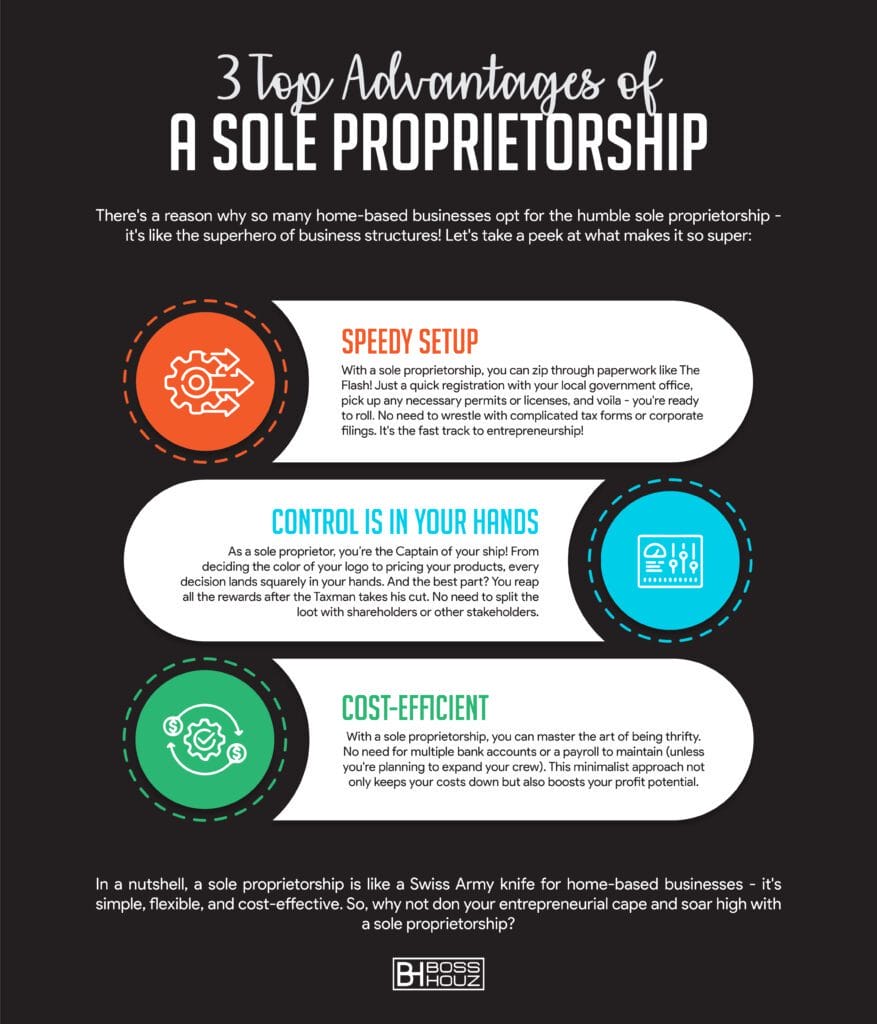Hey, home-based biz wizards! 🧙♀️ Ready to take the leap into the exciting world of sole proprietorship? Well, pull up a seat and grab a cup of joe, because you’re about to embark on an amazing journey where YOU call the shots and reap all the rewards. Sure, it might seem like a monster task at first, but hey, every business hero needs a challenge, right?
First off, let’s unravel the mystery of the sole proprietorship. As a concept, it’s simpler than the latest IKEA flat-pack! Imagine it as a business where you’re the solo star 🌟, singing the tune of profit or dealing with the occasional off-key note of loss. The beauty of it? It’s all on you – no bandmates (read: board members or shareholders) to consult for every little thing. Plus, when tax season rolls around, it’s just your income tax on the table. Simple, right?
Alright, now that you’ve got the basics down, it’s time to dive into the nitty-gritty of setting up your sole proprietorship. From legal must-dos to success-boosting tips, we’ve got the A to Z lined up for you.
Table of Contents
ㅤ
Statistics for Sole Proprietorship & Home-Based Businesses
📈 The Sole Proprietorship Surge: Let’s talk big numbers: 76.2% of U.S. businesses rock the sole proprietorship model. That’s a lion’s share of the American business landscape!
👨💼 Self-Employment Statistics: Our number crunching from US Census Bureau and SBA data reveals a staggering 25.3 million businesses in the U.S. are self-employed – truly a testament to the spirit of entrepreneurship.
⏫ Growth Trend: And guess what? This figure isn’t stagnant – it’s climbing every year, proving that the sole proprietorship structure remains a compelling choice for new and seasoned entrepreneurs alike.
💼 Home-based Business Majority: Half of all U.S. businesses have set up shop at home. That’s a clear sign of the shifting trend towards flexible, non-traditional workspaces.
🚀 Startups Love Home: An impressive 69% of startups in the U.S. sprout from home-based businesses, proving that innovation can bloom anywhere, even in your living room.
💰 Startup Costs: Here’s a cheer for budget-friendly entrepreneurship! 44% of home-based business owners started their ventures with $5,000 or less, making the dream of business ownership more attainable than ever.
Laying the Foundation: The ABCs of Sole Proprietorship 🏗️
Transforming your home-based biz dreams into reality can feel like a thrilling roller-coaster ride 🎢. But before you buckle up and take off, let’s go through the pre-flight checklist together.
Step one on this journey is to play detective 🕵️♀️. Investigate your state’s laws on small businesses like yours. You’re looking to ensure your ride is not only fun but also complies with all the safety rules.
Next, decide on the best ride for you: are you going solo with a sole proprietorship, joining forces with a partnership, or considering an LLC (Limited liability company)? Each ride has its own twists and turns, so weigh up the pros and cons carefully.
After that, it’s time to christen your ride. You’ll need a legal name for your biz, something that screams “you” but also complies with any naming conventions required by law. Make sure your chosen name isn’t already lighting up the theme park by checking with your Secretary of State office and doing a quick online search.
Last but not least, you’ll need a separate bank account for your new venture. This way, you’ll avoid muddling up your personal funds with your business bucks. Also, don’t forget to register with any relevant bigwigs in the biz world, like the IRS.
Advantages Of A Sole Proprietorship


There’s a reason why so many home-based businesses opt for the humble sole proprietorship – it’s like the superhero of business structures! Let’s take a peek at what makes it so super:
Speedy Setup 🏎️:
With a sole proprietorship, you can zip through paperwork like The Flash! Just a quick registration with your local government office, pick up any necessary permits or licenses, and voila – you’re ready to roll. No need to wrestle with complicated tax forms or corporate filings. It’s the fast track to entrepreneurship!
Control is in Your Hands 🎮
As a sole proprietor, you’re the Captain of your ship! From deciding the color of your logo to pricing your products, every decision lands squarely in your hands. And the best part? You reap all the rewards after the Taxman takes his cut. No need to split the loot with shareholders or other stakeholders.
Cost-Efficient 💰
With a sole proprietorship, you can master the art of being thrifty. No need for multiple bank accounts or a payroll to maintain (unless you’re planning to expand your crew). This minimalistic approach not only keeps your costs down but also boosts your profit potential.
In a nutshell, a sole proprietorship is like a Swiss Army knife for home-based businesses – it’s simple, flexible, and cost-effective. So, why not don your entrepreneurial cape and soar high with a sole proprietorship? 🚀
Disadvantages Of A Sole Proprietorship
Hey, even Superman has Kryptonite! Similarly, running a sole proprietorship out of your home comes with its share of challenges. Here are a couple of things that might give you pause:
- Personal Liability Risk 😱: Think of it as the downside of being the Captain of your ship. If your business ship hits an iceberg (like legal issues or debts), all your personal assets could be thrown overboard to cover the damages. Without the safety net of an LLC or another entity, your personal wealth could be at risk. But don’t worry, just like Captain Jack Sparrow, you can navigate these treacherous waters with the right knowledge and planning.
- Funding Hurdles 🏃♂️💨: If you’re thinking of growing your home-based empire like Richard Branson, you might find it a bit challenging to secure external funding. Banks often play hard-to-get when it comes to lending money to sole proprietors without proof of financial stability. This means you might need to dig into your own pockets to fund your business dreams.
While a sole proprietorship is a fantastic option for many homepreneurs, it’s like a spicy dish – not everyone’s cup of tea! By understanding potential pitfalls, you can equip yourself with the right tools to overcome these hurdles and chart your path towards business success! 🏆 Remember, thorough research and proper planning are your best friends in this entrepreneurial journey.


Nailing the Perfect Business Name for Your Home-Based Biz 🎯
First things first, let’s talk about your biz’s name. Think of it as the welcome mat at the front door of your company. It’s gotta have that special sparkle ✨ that sums up who you are and what you’re selling.
Your task list for this is a bit like a scavenger hunt:
- Brainstorm: Cook up a name that captures the essence of your biz and screams “you”. This is the fun part, so let your creativity run wild!
- Play detective 🕵️: Search high and low to ensure your dream name isn’t already taken.
- Seal the deal 📝: Once you’ve found THE name, it’s time to register it with your local government. This is like putting a padlock on your biz name – no one else can use it without your say-so.
Extra credit: If you’re feeling fancy, consider trademarking your biz name. This step is optional but can provide an extra layer of protection for your brand.
Tick these off your list, and you’re well on your way to setting up your very own sole proprietorship!
Registering Your Business With The State
Let’s talk about making your business “official” with a state registration. It’s a bit like sending out invites to your business’s grand debut party 🥳. This step not only keeps you in the good books with the law, but also shields you from personal liability.
Here’s your step-by-step guide:
- Name check: Ensure your chosen name fits local regulations. It’s like picking out the perfect outfit – you want to stand out, but not break any fashion laws (in this case, trademarked names).
- File that application 📝: Once your name is ready to rock, head to the appropriate government office to file your business registration. Be ready to present some documents (proof of identity, residence, etc.) and cover some fees.
- Don’t shy away from help: If all this paperwork feels like a scene from a horror movie, don’t panic! There are tons of resources online ready to hold your hand through the process.
- Tailor it to your biz: Depending on your business activities, there might be some extra steps to complete. It’s like adding the perfect accessories to your outfit – make sure it’s all tailored to your unique business.
Wrangling Your Business Licenses and Permits 📚
Alright, you’ve got your business name, and you’ve registered with the state. The next step on the yellow brick road to a thriving home-based business is gathering up all your necessary licenses and permits.
Think of these as your golden tickets 🎟️ to running your business in full compliance with the law. And depending on your industry and location, you might be looking at a mix of local, state, and federal tickets. Sounds like a lot? Don’t sweat it!
When you’re hunting down the right licenses and permits, remember:
- The internet is your friend 🌐: There are plenty of online resources ready to guide you through this process. Government websites and private legal services are good starting points.
- Don’t be shy, ask for help: Your local Small Business Administration office is like your fairy godmother in this process, ready to help you figure out what paperwork you need.
- Dot your i’s and cross your t’s: When you’re filling out your applications, make sure all your info is accurate. This will keep you on the right side of the law and let you focus on what you do best – running your awesome home-based business.
With these tips in your back pocket, you’ll be able to navigate the license application process like a pro and set your business up for success. You’ve got this! 🚀
Opening A Business Bank Account
Now that you’re all official, it’s time to invite a new VIP to the party – your business bank account! This bad boy is going to help you keep your personal and business moolah 🤑 separate. Plus, it’s going to make it super easy for your clients to pay you directly. So let’s dive into finding the perfect financial partner for your biz.
Choosing the right bank is a bit like dating. You need to find the one that ticks all your boxes. So ask yourself:
- Online banking 🌐: Can I manage my dough from the comfort of my home office?
- Fees 💸: Are there any costs that come with opening the account?
- Access to funds 🏧: How quick can I get my hands on my cash when I need it?
Answer these questions, and you’ll be well on your way to finding your perfect financial match. Take your time, do your research, and soon enough, you’ll be ready to swipe right on the right bank for your home-based business. Get ready to say, “I do” to financial success!
Master the Art of Record-Keeping 🗂️📊
Now, let’s tackle one of the least glamorous but most crucial aspects of running your home-based business: record-keeping. The Federal Trade Commission is not kidding around when they say over half of small businesses bite the dust within five years due to messy financial management. So, let’s get your records in line so you’re not part of that statistic, shall we? 👊💪
File Organization: Your New Best Friend
Start by getting your files under control. Create categories like income, expenses, taxes, invoices, contracts, and more. Pro tip: keep electronic copies in addition to physical ones. It’s like having a clone of your office that you can access anytime, anywhere.
The Magic of Accounting Software 🧙♂️
Next, let’s get techy! Accounting software like QuickBooks or Xero can be your magic wand, creating detailed reports at the click of a button. These wizards will help you track your profits and losses, and give you a bird’s eye view of your business trends.
Looking for a free option? Check out Wave!
Keeping Tabs on Transactions 🧾
Last but not least, stay on top of all your transactions. Record every purchase, payment, and pebble you pick up. This will help you avoid “wait, what was this for?” moments and ensure your books are as accurate as a Swiss watch.
Remember, creating a top-notch record-keeping system might require some patience and discipline, but it’s like a high-intensity workout for your business. You’ll see the results in improved efficiency and profitability. And who doesn’t want that, right? 💪📈
PRO TIP – Hire and Accountant!
Shhhh, don’t tell anyone, but this guy once failed Accounting at university twice. Yikesss….right? I’m not terrible at numbers, but my god, I am not good with all the accounting noise. Trust me, it gets even more expansive if you ever do go the LLC route.
If the following give you nightmares:
– Sales tax / Income taxes
– Doing tax returns
– Business expenses & Bills
– Finance
– Tax Payments
You might really want to consider speaking with a CPA first. Nowadays, with programs like Quickbooks, accounting can be simplified on all fronts, but it’s always good to have an expert on your side, truly keeping count of the dollars and cents. Make sense?
Determining Tax Responsibilities – Becoming a Tax Guru 🧮💰
No, don’t run away…yet! 😅 When you’re running a home-based business, knowing your tax responsibilities is as important as knowing your favorite coffee order. The key is understanding how taxes for self-employed folks differ from those for regular employees.
The IRS (the taxman 🕵️♂️) provides a treasure trove of resources to guide you through the labyrinth. Here’s your cheat sheet:
- Know Your Forms: Get acquainted with Schedule C (Business Profit or Loss) and Form 1040-ES (Estimated Tax For Individuals). These forms will help you report your income, deductions, and expenses like a pro.
- State-Specific Rules: Some states have their own rules for self-employment taxes. This could include contributions to unemployment insurance or withholding taxes. So, make sure you’re on top of these as well.
When you’ve got a handle on the ins and outs of taxation for home-based businesses, you’ll be in a prime position to maximize profits while staying on the right side of the law. Plus, you might uncover some hidden gems like deductions or credits that could boost your bottom line.


Insuring Your Business – Don’t Roll the Dice! 🎲🛡️
Navigating the wild world of insurance can be tough, but don’t fret, we’ve got a roadmap for you.
- Research is Your Best Friend: Look around, compare policies, and soak in the insurance knowledge. Make sure your chosen policy is like a tailored suit – a perfect fit for your unique needs. 🕵️♂️📝
- Consult the Wise Ones: An insurance specialist is like the Gandalf of your business journey. They’ll guide you through the insurance maze, keeping in mind the unique quirks of your home-based business. 🧙♂️💡
- Don’t Be Stingy with Coverage: It’s tempting to cut corners on coverage to save a buck. But remember, you’re protecting your dream here. Don’t risk it all for a few saved pennies. 💼🛡️
- Mix and Match Policies: Your business is unique, and so are its risks. You might need more than one policy to cover all your bases. If you’re crafting products, for instance, you’ll need to tag on product liability alongside general liability coverage. 📚✅
When choosing your insurer, don’t just go for the cheapest deal. Make sure they offer competitive rates and solid protection. Remember, the best insurance policy is the one you hope you’ll never need but are glad you have if you do! 🌈🏡
Setting Up Financial Accounts
Alright, now that your business is armored with insurance, let’s dive into the world of finance. We’re talking business bank accounts, personal accounts, and the mystical EIN.
Employer Identification Number (EIN): This is your business’s social security number. It opens up a world of possibilities – from enabling merchant accounts with payment processors like PayPal or Stripe, to giving you a ticket to approach lenders for a loan. The best part? It’s easy-peasy to get – a few clicks on the IRS website, and voila, you’re ready to accept those digital dollars from customers! 💳🌐
By setting up these basic financial accounts now, you’re taking important steps toward establishing yourself as a legitimate home-based business owner who is prepared for success!
What Is The Difference Between An Owner And A Sole Proprietor?
It is an interesting theory that business owners and sole proprietors are one and the same. However, this could not be further from the truth as they actually have different roles to play in a business setting. Owners of businesses may or may not be involved with day-to-day operations, while a sole proprietor must manage all aspects of their home-based business themselves.
An owner typically has limited liability for any debts incurred by the business but a sole proprietor will bear full responsibility for any liabilities related to their enterprise. In addition, an owner’s involvement can range from hands-on management to being only a financial investor, whereas a sole proprietor is solely responsible for running their own company. Furthermore, owners usually possess voting rights and make decisions regarding major changes, while a sole proprietor does not have such power within their organization.
It becomes evident that there are many differences between an owner and a sole proprietor when it comes to managing business affairs, which depend on the type of entity chosen to operate through. Understanding these distinctions allows entrepreneurs to choose the most suitable arrangement for their venture so they can grow and succeed without unnecessary legal complications.
The Big Business Question: Sole Proprietorship or Incorporation? 🤔
When planning to set up a home-based business, one of the most important decisions that you need to make is whether to operate as a sole proprietorship or incorporate your business. There are several key factors to consider when making this decision.
The first factor is how much personal liability protection do you need? Incorporating your business allows for more limited personal liability than operating as a sole proprietor. For example, if someone sues your corporation for damages, the assets of the corporation can only be used to pay off any judgments against it and not yourself personally. On the other hand, you may still have some personal exposure in either case depending on how much money was borrowed by your business and what type of contract was signed with creditors.
The second thing to consider is taxes. Corporations generally have more options available when it comes to tax deductions, such as employee benefits and retirement plans. Also, corporations typically enjoy lower income tax rates than sole proprietorships do because they don’t have self-employment taxes imposed on them. However, incorporating also requires additional paperwork and filing fees each year which can add up quickly over time.
Ultimately, deciding between these two entities should come down to balancing the advantages and disadvantages of both structures taking into account all applicable regulations for starting a home-based business in your state or country. Consulting an experienced accountant or attorney can help provide valuable guidance during this process so that you feel confident about making an informed decision for your unique situation.
How much does it cost to set up a sole proprietorship in the US?
Alright, eager beavers! You’re all set to kick-start your sole proprietorship, but you’re probably wondering about the cash you need to dish out to make it official. Well, hold onto your wallets because we’re diving into the cost of setting up a sole proprietorship in the good ol’ USA.
Initial Paperwork Costs 📑: The good news? Compared to other business structures, sole proprietorships are relatively light on the pocket. You don’t need to pay to form your business entity. The only thing you might need to invest in is a ‘Doing Business As’ (DBA) name if you’re not using your own name for your business. This can cost anywhere between $10 to $100, depending on your local government’s rates.
Permits and Licenses 📜: These are like the entry tickets to the business world. The cost can vary greatly depending on your business type and where you’re located. It can range from $50 for a basic home business permit to several hundred dollars for specific professional licenses.
Tax Prep 💼: Ah, Uncle Sam’s share! You’ll need to pay taxes as a self-employed individual, and it might be wise to hire a tax pro to help with your first return. This could set you back between $200 and $500, but remember, it’s a necessary cost to keep the taxman happy.
Insurance Coverage 🛡️: We’ve already chatted about this, but let’s not forget it in the cost breakdown. The cost of coverage varies depending on your business. A typical home-based business might expect to pay around $500 per year for a basic general liability policy.
Setting Up Shop 🏡: Remember, your home is your office, so you might need to invest in some new equipment or software. This varies wildly based on your business, but let’s ballpark it at $500 to $2000.
So, there you have it! A broad-stroke painting of the costs involved in setting up your sole proprietorship in the US. Remember, these are rough estimates and can vary based on several factors. But don’t let these numbers scare you! With a bit of planning and a pinch of fiscal discipline, you’ll be sailing smoothly into the entrepreneurial sunset. 🌅
The Final Act: Is Sole Proprietorship the Grand Finale? 🎭
Welcome to the grand finale of our home-based business odyssey! Let’s face it, choosing to go solo with a sole proprietorship can be a pretty sweet deal 🍬. It’s like being the captain of your own ship, charting your course, and reaping the fruits of your voyage all by yourself!
Sailing the sole proprietorship seas has its perks. You’ve got complete control over your business – it’s all you, all the way! The loot? Yours to keep! But remember, every sea has its storms 🌩️.
Navigating through a sole proprietorship means bracing yourself for potential liabilities, waving at capital from a distance, and sometimes shouldering a higher tax burden compared to your corporation and LLC buddies. But hey, if you’ve got the confidence and knack for steering your business ship through turbulent waters, sole proprietorship could be your winning ticket 🎟️.
In the grand scheme of things, the choice between business types is a balancing act of weighing pros and cons. So, put on your researcher’s hat, do your homework, and make an informed decision that best suits your unique entrepreneurial journey. Here’s to your success, growth, and sustainability in the entrepreneurial theater! 🎉🍾
FAQS
What other business structures are there?
In the United States, there are several common types of business structures beyond sole proprietorship and LLC (Limited Liability Company), each with its own advantages and disadvantages. Here they are:
- Partnership: This can be a great choice if you’re going into business with one or more people. There are two main types of partnerships: General Partnership (GP) and Limited Partnership (LP). In a GP, all partners share equal rights, responsibilities, and liabilities. In an LP, one or more general partners have unlimited liability, while the limited partners have liability only up to the amount of their investment.
- Corporation (C Corp): This is a legal entity separate from its owners, providing the highest level of protection from personal liability. However, they require more paperwork, operational processes, and can lead to double taxation – once on corporate profits, and again on dividends distributed to shareholders.
- S Corporation (S Corp): Similar to a C Corp, but with taxation like a partnership. Profits and losses are passed through to shareholders and included on their individual tax returns, thus avoiding the double taxation of C Corps. However, S Corps have certain restrictions like a limit on the number of shareholders and restrictions on who can be a shareholder.
- B Corporation (B Corp): These are for-profit companies certified by the nonprofit B Lab to meet rigorous standards of social and environmental performance, accountability, and transparency.
- Cooperative (Co-op): A business owned and run by and for its members. These members could be employees, customers, or residents who share the profits.
- Nonprofit Organization: These are businesses organized for a purpose other than generating profit. Because of this, they are exempt from many taxes.
What is a DBA?
🔍 Decoding DBA: Ever heard of a “DBA”? It stands for “Doing Business As”, and it’s a term that’s as intriguing as it sounds.
📜 DBA in Action: Essentially, a DBA is a pseudonym, an alias that a business can legally use instead of its official name. Handy for branding, wouldn’t you agree? 🤔
💼 Legalities and Usage: It’s not just for fun though – in many places, if you plan to operate under a name different from your legal business name, filing a DBA is a must. So, get your creative hats on! 🎩
Business income, and business credit cards, how does this work?
💰 The Business Income Saga: Business income, simply put, is the money that your business earns. Be it from selling products, providing services, or any other revenue-generating activities, it’s the lifeblood of your enterprise. 🏦
💳 The Role of Business Credit Cards: Now, a business credit card is a super tool that allows you to separate your business and personal expenses. It’s all about keeping the books clean and clear. Plus, they come with perks like reward points and cash back! 🎁
🔄 The Perfect Tandem: Your business income fuels your capacity to pay off your business credit card. The better you manage this delicate balance, the healthier your business financials remain. It’s a dance of dollars and sense! 💃💡








